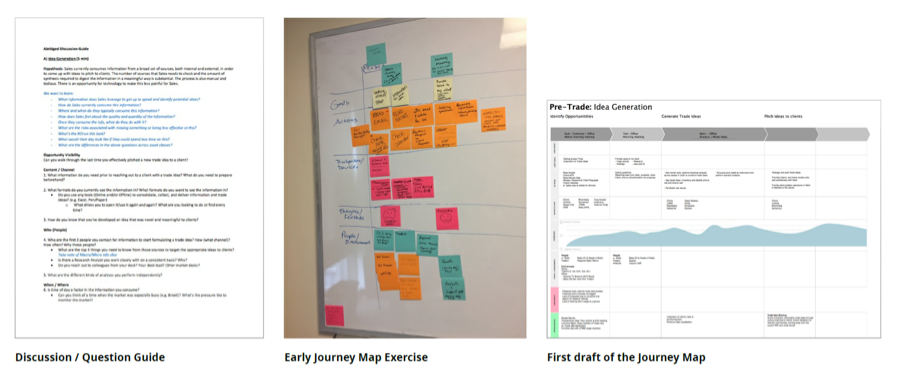Transformation journey of un-bundling monolithic apps that work across platform.
Powerful Applications, but built separately.
Over the years, JP Morgan CIB has invested in many applications with the goal to save time and create a better experience for users who use their financial services. But with so many tools created by a complex mix of new and legacy technology, desktop management and efficiency has become very difficult.

Evolution of Financial Desktop
The need for efficiency and control has transformed the financial software ecosystem and seen rise in u-bundled components. The components are powerful and unlock so much potential for users and developers alike. They allow product teams to figure out what users want to use, then build and improve on that while reducing redundancy on what is not being used.

Fragmented work that competes for screen real-estate.
Screen real estate is extremely valuable in the investment banking world. Internal, external and 3rd party apps are constantly trying to attract attention of the user. Un-bundled components, although easily iterable produce a fragmented desktop environment. Switching between windows and tabs all day to accomplish simple tasks prevents users from doing their best work.

Business Goal: A unified space of makes working with un-bundled components easier.
Make applications easier to access
Ability to group components together to create custom solutions that help in individual workflows
Interoperable and scalable across environments

UX Plan: Understand the gaps and focus on value
Interview Users of various products and Clients
Create User Journeys to map pain points
Design and collect feedback fast.
Team:
2 UX designers
1 Visual Designer
1 Product Manager
Frontend and Backend Lead
Methodology:
Double Diamond
Agile Development
Interviews with Internal ( users ) and external ( Clients ).
To get going with the interview, we reached out to our most communicative users. Tried working with them to figure the which clients would give us feedback that will be valuable.
With list of user, worked with the product team to scheduled interviews 3 weeks in advance and collaborated to create an interview script.

Interview Prep
Map journey with team members so that we have everybody on the same page
Create questions on what we want to learn from our users

Journey maps to understand pain points as a team and identify which one's should be prioritized.
The design team would create journey maps so that the whole team could understand the user cases and stay away from speaking about features and designs. This helped us design the experience rather than get stuck in features.

Regular Feedback loop with proxy users and stakeholders
Working with internal users gave us the advantage of having weekly and biweekly feedback loops. The design team would produce wireframe and prototypes and review them with stakeholders at regular intervals. This feedback loop helped us fail fast and iterate on designs faster.

Analyze the data collected

Design
Revenue Tool to monitor daily revenue and profit allocation

Revenue plugins for CRM tool integrated with Outlook

Responsive web app that manages allocation of clients and renewals that need supervisor approval

Components connected to make custom dashboard

Designs provided to developers

